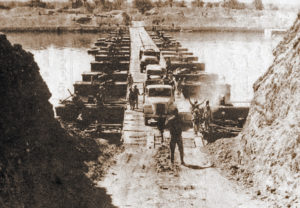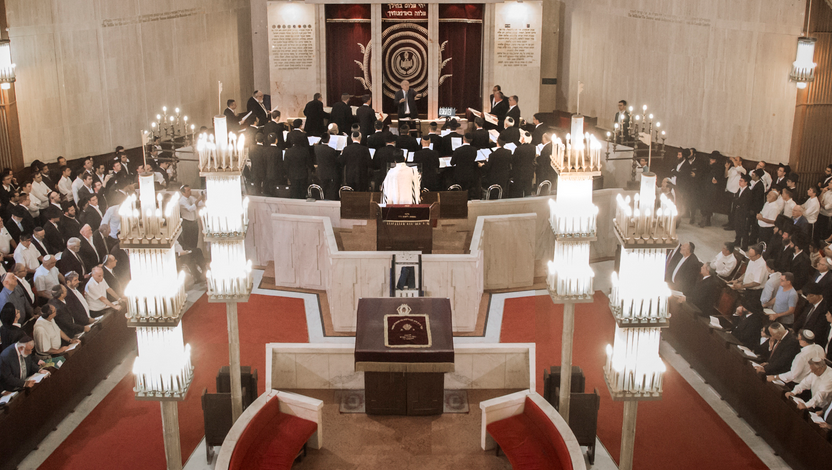Yom Kippur 2020: Israel in Crisis
A lockdown, a pandemic and an important holiday all push country to brink
Israel is entering the Yom Kippur holiday in crisis.
Exacerbated by a harsh multi-week lockdown owing to the coronavirus pandemic, the country is in one of the toughest and most difficult predicaments in its 72-year existence, according to strategic analyst Amos Yadlin, who presents parallels to the 1973 Yom Kippur War.
“I believe that Yom Kippur 1973 is relevant to Yom Kippur 2020 – the calamity in which we [now] find ourselves was created by the government,” Yadlin, a former fighter pilot and chief of military intelligence who today heads the Tel Aviv-based Institute for National Strategic Studies (INSS), told The Media Line.
I believe that Yom Kippur 1973 is relevant to Yom Kippur 2020
“If you look back, the country was in euphoria before the 1973 war,” he said, referring to what some call an extended state of extreme hubris brought on by what was considered a miraculous victory six years before in the fighting of 1967.

Surprise attack. Egyptian tanks cross the Suez Canal during the 1973 Yom Kippur War. (Wikimedia Commons)
“If you look at the end of the first wave [of the coronavirus outbreak] earlier in 2020, you also see that we were living in a sense of euphoria. People were encouraged to go out to drink beer, sit on the beach and bask in the government’s glory at finishing off the [pandemic],” Yadlin stated.
“Today,” he added, “the government’s actions – or lack of action – its zigzagging responses, have squarely created a disaster not unlike the aftermath of the 1973 war.”
Today, the government’s actions – or lack of action – its zigzagging responses, have squarely created a disaster not unlike the aftermath of the 1973 war
Yadlin believes that both crises were based on a breach of trust. Whereas in 1973 it had to do with a lack of preparedness in the military, in 2020 it began with a lack of preparedness in the health sector. Both spheres, he notes, are directed by the government.
“Today, as before, the prime minister is complicating the issue,” he insists. “We need to fight this as we would fight any enemy: professionally. The second wave [of the coronavirus outbreak] is getting more and more difficult, and the government has lost the public’s trust.”
Dr. David Blass, a psychiatrist affiliated with the Yehuda Abarbanel Mental Health Center in Bat Yam, outside Tel Aviv, uses the term “crazy times” to describe the period leading up to this year’s Yom Kippur.
“The cumulative impact of the pandemic’s chronic social, spiritual, religious and physical stress is completely encompassing. Now, right before Yom Kippur, I am seeing much more personal turmoil,” Blass told The Media Line.
The cumulative impact of the pandemic’s chronic social, spiritual, religious and physical stress is completely encompassing. Now, right before Yom Kippur, I am seeing much more personal turmoil
“For doctors, social workers and rabbis, the volume of questions from our patients and our fellow community members is way, way up,” he said.
“The emotional and physical toll of the coronavirus is making every aspect of our lives less efficient. … We have less social support and more stress,” he stated.
“As a result, we are dealing with more health anxieties than ever,” he went on. “We are a lot less healthy today, both physically and mentally, than we were six months ago.”
Blass says he sent a public service announcement to members of his Beit Shemesh synagogue.
“Many people have medical conditions that make fasting on Yom Kippur complicated even during a regular year. Given that some people may be praying at least part of the time in outdoor or partially outdoor groups – the temperatures will be high this year; the predicted high for Beit Shemesh is 37 degrees [Celsius] – this could raise serious medical-Jewish Law questions,” he wrote in an email to his fellow worshipers.
“Some people with medical conditions need guidance about whether to fast, how to fast, when to break the fast, what are the priorities in terms of going or not going to [synagogue], and so much more,” he noted.
“Yom Kippur falls on a Sunday night, meaning that the days prior to Yom Kippur – Friday, the Sabbath and the day of Yom Kippur’s start – are not regular workdays for many of your doctors,” he continued. “And even those who are working are already inundated with coronavirus-related questions and issues and may be less available … to answer last-minute fasting questions.”
Blass told The Media Line that most doctors are currently “overwhelmed, or nearly so” due to the pandemic and related issues.
“I answered [an] email [of yours] at 04:00. That shows how overwhelmed I have become,” he said.
I answered an email of yours at 04:00. That shows how overwhelmed I have become
Rabbi Chaya Rowen Baker, spiritual leader of Ramot Zion, a congregation in Jerusalem’s French Hill neighborhood, says people are spiritually drained.
“My congregants’ inner worlds are thirsty for the services and for the connection. Not only the transcendental aspects but also the communal. We are trying to answer their needs on every level,” she told The Media Line.
“I am responsible for the spiritual health and needs of my congregation. The staff and I need to ensure that we address their spiritual needs – which is not easy, to say the least,” she noted.
I am responsible for the spiritual health and needs of my congregation. The staff and I need to ensure that we address their spiritual needs – which is not easy, to say the least
Rowen Baker reports that the synagogue is working closely with the police to ensure that prayer services meet the requirements of Israel’s so-called coronavirus cabinet, a group of government ministers tasked with setting pandemic policy.
“We might hold services only outside or have two or three simultaneously, inside and outside,” she said, admitting that at the time of the interview she – like much of the rest of the country – was not really sure what the final regulations would require.
Whatever happens, this year’s Yom Kippur will be unlike any that have come before it. Yet with such adversities literally sitting on their hearts, both Rowen Baker and Blass believe the current situation offers us a rare opportunity.
“The coronavirus pandemic is challenging us to take responsibility for our own spiritual health. By changing our routines, it is forcing us to further yearn to rejoin our community,” Rowen Baker said.
“We cannot allow the virus to force us away from our community. Rather, we should see this as a sign to find the strength to sustain ourselves and our spiritual wellbeing,” she added. “It is not a reason to stop being religiously Jewish.”
Blass says that religious life “finds strength” from challenges.
“Religious life is encouraged by difficulties and surmounting them,” he explained. “Despite everything, I am excited by the opportunities to our holy congregations presented by the coronavirus pandemic and the lockdown.”
The INSS’s Yadlin is certain that Israel’s decision-makers can return to the high road and regain the public’s trust.
“In the short term, the government needs to ensure real and true enforcement [of restrictions]. In the long term, it needs to tell the truth – the difficult truth. The public needs to know that the government is acting for the people and not [just] for its own political survival,” he explained.
“We need decisions based on professional considerations, without politics entering everything,” he said.
We need decisions based on professional considerations, without politics entering everything
“Yom Kippur is a day of learning,” he continued. “We need to look outside of ourselves, at other countries that have succeeded, and use those benchmarks for our actions.”


